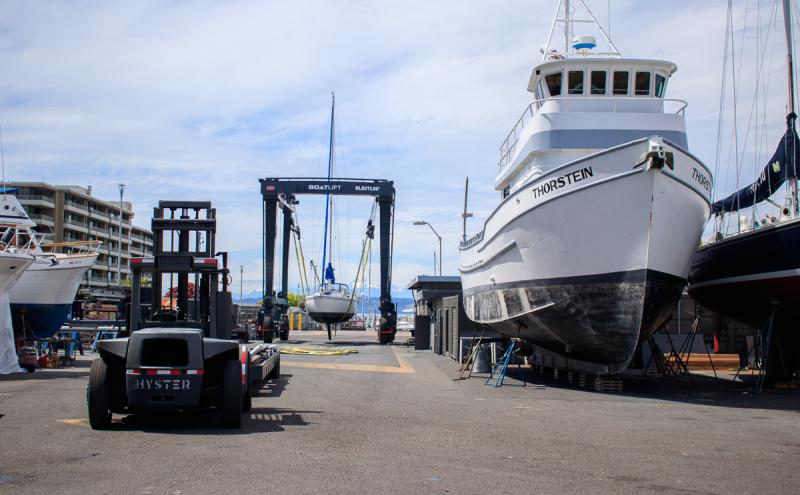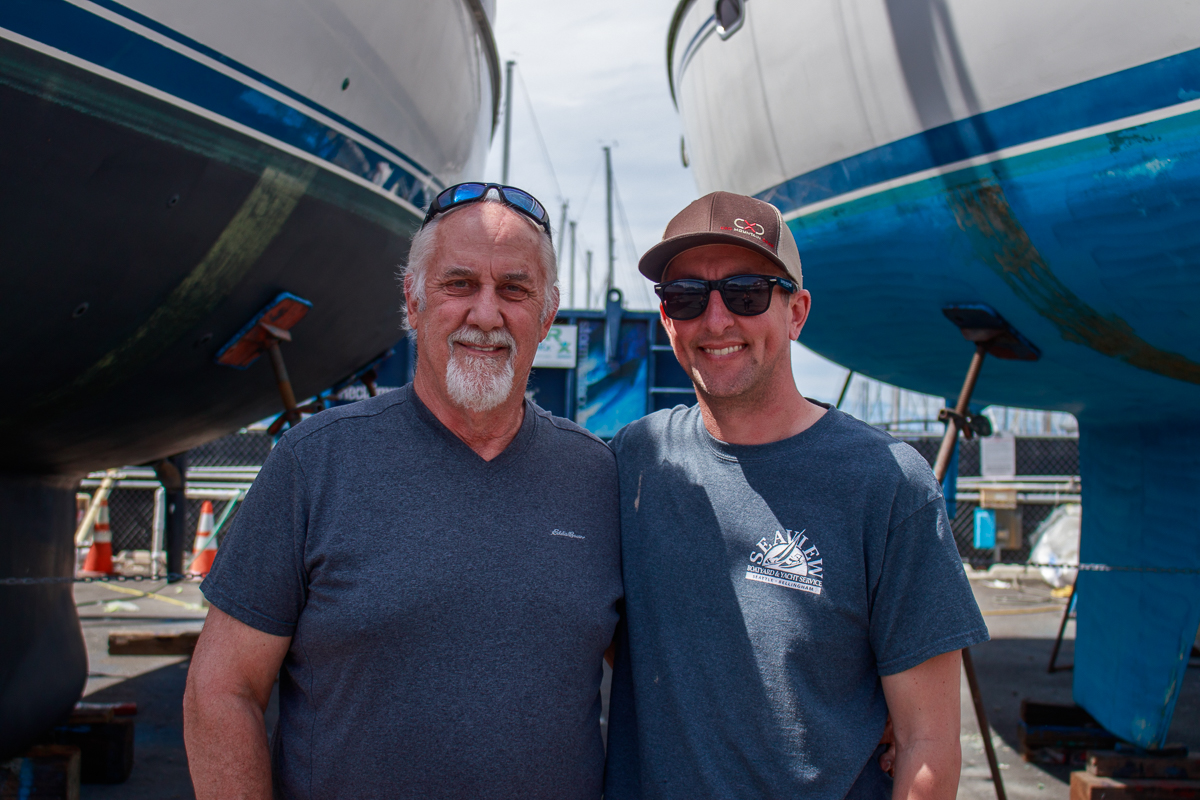
For Thiel and Phil Riise, making sustainable business decisions is part of the core beliefs and values that make up the foundation of their company — Seaview Boatyard.
With that mindset, the two installed an advanced stormwater reclamation system at each of their boatyards at Shilshole Bay Marina and in Bellingham in 2008, which helped accelerate the adoption of similar stormwater treatment systems industrywide.
Seaview Boatyard is a family-owned company founded nearly 40 years ago. It started as a do-it-yourself shipyard and became a full service operation in 1980, allowing people to do their own work but also providing general services as needed. Services include general maintenance, detailing, waxing, metal fabrication, mechanical services, repair, and paintwork. Seaview Boatyard has three locations — one in Seattle and two in Bellingham.
“If people aren’t comfortable doing something, we do it for them,” said Thiel Riise, president of Seaview.
Phil Riise, founder and CEO of the company, said it’s a very unique model.
“Typically boatyards do it all or do nothing; we have a blend of both those worlds,” he said.
Their focus on sustainable practices also sets the boatyard apart. The company was awarded a 2017 Environmental Excellence Award by the Port of Seattle for Innovation in the Small Business category.
“We are doing what we feel is excellent boat repair, and we’ve made it our priority to be compliant way before it was politically correct or a requirement,” Phil said.
Phil said Seaview has challenged fellow members of the boatyard industry to follow their lead.
“We always say if we can cut a boat in half and extend it, if we can do all these different things to boats that are pretty complicated, we can train water to a hole in the ground for a stormwater reclamation system; it’s actually pretty simple.”
Thiel said the challenge for installing the system is mostly cost driven but the results have been clear. They have seen the numbers for copper and zinc drop significantly in the water samples they have taken, a sign of a reduction of hazardous runoff to the water.
Seaview has also moved to the use of aluminum anodes instead of zinc anodes, which has eliminated zinc discharge into the water. Zinc, along with copper, in the waterways is known to harm salmon. They also use bioswales, which are designed to remove debris and pollution of surface runoff water and set up platforms beneath boats to keep hazardous runoff out of the stormwater drains.
Boatyards must meet a series of clean air, clean water, and hazardous waste regulations and because they are proactive in their strategy and processes, Phil said inspections are a breeze.
“They ask a few questions, ask for our records, and are on their way,” Phil said.
Thiel said that copper and zinc are big parts of their waste stream, but through stormwater drainage, the use of aluminum anodes, and other sustainable practices, they have been able to drastically reduce those levels.
“Whatever we can do to minimize our footprint and maintain that is really important,” Phil said. “It really is a mindset. You have to educate not only yourself but your staff on the mindset and practices.”






